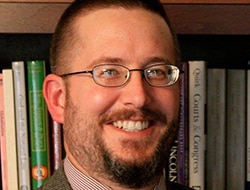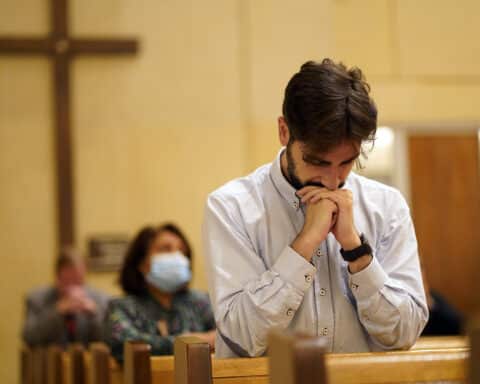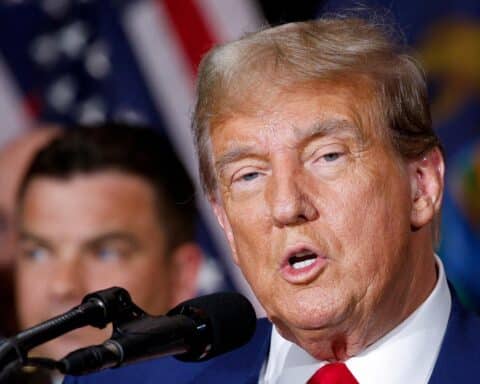
I did see several pieces on the various celebrities who went to their eternal reward in 2020 (more than a few of them, alas, because of COVID-19). Even as we celebrate the birth of the Child who brought new life into a dying world, the end of the year, with its long, dark, cold nights, always seems to call to mind those whom we have lost, and the end of 2020 more so than most.
The greatest loss over the past year, though, was not that of a particular person, but the final passing away, after a long, painful decline over many decades (or even centuries), of the Western world’s respect for truth. Not that long ago — well within my lifetime — we Americans could still shake our heads smugly at those benighted Europeans who had cast aside their theological and philosophical patrimony to embrace nihilism, postmodernism and deconstructionism. And we Catholic Americans — at least the orthodox ones — cheered as Pope Benedict XVI attacked the dictatorship of relativism head-on, warning all who would listen that setting aside the truth to pursue a freedom that is really libertinism would inevitably lead us to abandon the Truth who came to set us free.
Just a dozen or so years later, America has leapfrogged ahead of Western Europe, and in our characteristically anti-intellectual way. Nihilism, relativism, postmodernism and deconstructionism may all be wrong, but at least they are philosophical attempts to grapple with the nature of reality, and especially with the question of how we can say we know what we think we know. A Christian concerned with the truth can read a Nietzsche, a Derrida, or even a Foucault and come away with some genuine insight into the human condition (as the pope emeritus himself has done).
The same cannot be said of most attempts to engage in rational discussion of matters of public importance here in the United States, including COVID-19 and the 2020 presidential election. From “fake news” to “alternative facts,” the entire political spectrum in America today is characterized not by a concern for truth and competing interpretations of how that truth should be made manifest in public policy, but by a concern for gaining and holding power, no matter what lies we have to tell others — and ourselves — in order to do so.
As Catholics, we know that power isn’t everything — or at least we should know that if we spend any time contemplating the cross. Christ had all of the power in the world. He could have done everything that the devil tempted him to do. He could have come down from the cross.
He didn’t. He rejected power that he had the authority to exercise, because the kingdoms of this world mean nothing if they don’t help us become citizens of the heavenly Kingdom. He accepted death and temporal defeat in order to give us new life. All we have to do is believe in him — in the Truth from which all truth flows.
But our faith in the one who is Truth itself begins to crumble as soon as we regard truth with a small “t” as a means to an end, an instrument to be discarded if acknowledging it would prevent us from obtaining the power our souls have desired ever since the Fall. Nietzsche was right: If God is dead, it’s because we have killed him. But this time, we didn’t do it by nailing him to the cross, but by a thousand small acts of infidelity to the truth.
Scott P. Richert is publisher for OSV.





